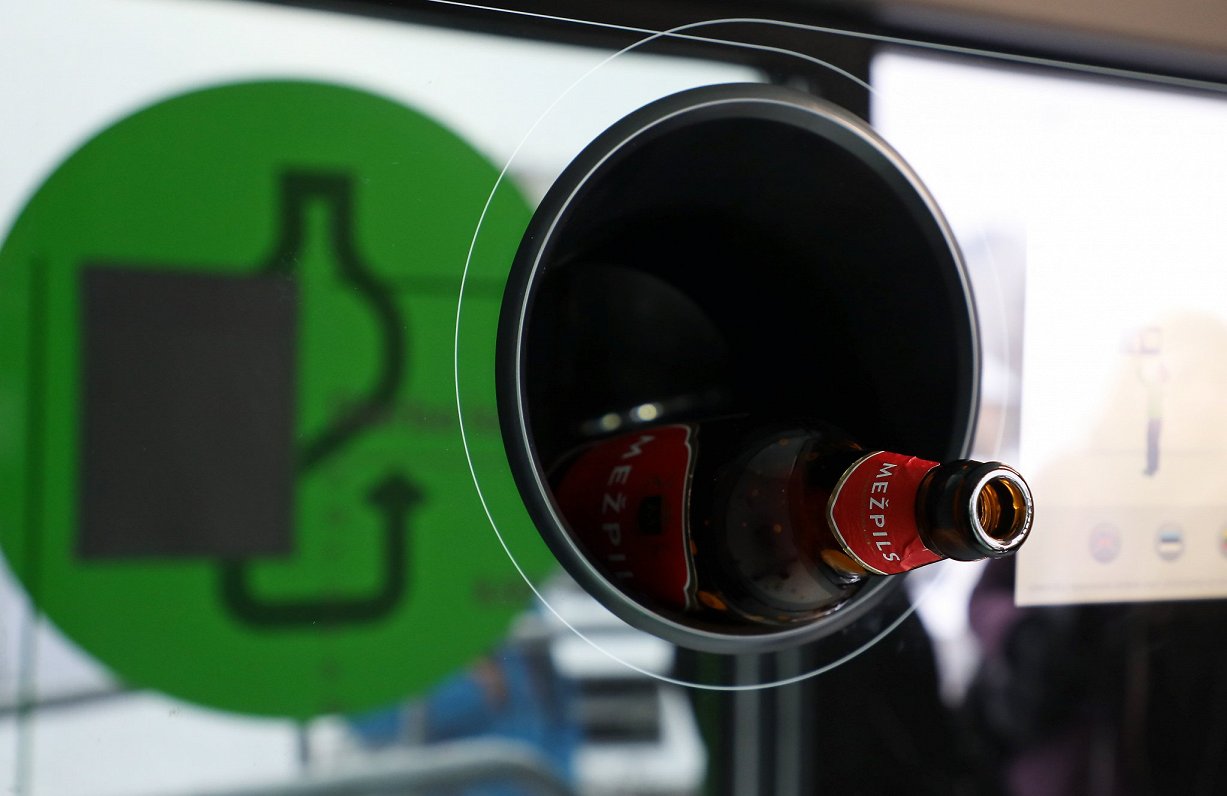This post-holiday week brings trouble to small rural shops that accept empty containers, and it further highlights the problems that small traders face in their daily lives.
Juris Lamberts, head of the development department of the Aibe shop network, said that “festivities are such an interesting thing that our citizens migrate to the countryside with relatives, friends, and often, when they make purchases in supermarkets or smaller shops just outside their home in Rīga, they travel with this container to rural areas. And then, when that party is over, then they do not bring the container back, they go to these small rural shops to deposit it”.
“And then it's a disaster. Some do this with such aggression, that there is a law and you have to take it. Come into the warehouse and see that we don't have physical place. If the glass is full, it can only overflow,” said the Aibe representative.
He stressed that for most small rural shops the storage room is very small, so there is nowhere to store empty bottles.
"We also have a photo where one of the owners of the Aibe store, with two bags in hand, goes to her private property, home, to store the containers there. Something is not really right if we have got so far, but there is no easy solution, as we understand," Juris Lamberts said.
Raimonds Okmanis, Chairman of the Board of the Lats shop network, also stressed that small shops face daily challenges in securing the deposit system and that he receives a complaint from shop representatives almost daily.
"Lats has more than 500 stores on the network, and half of them accept containers – half manually and half automatically," Okmanis said.
And the challenge is not only for those stores where the containers are received manually. There are problems with reverse vending machines, too.
One of the letters to Okmans says: "The deposit and pre-holiday time are a real challenge for deposit traders. In our parish, the second deposit-taking site, where there is also a small machine, has been suspended for several days. The reason is cockroaches. They're full of it. The machine is eaten. Cockroaches do not come from squalor, but they are brought with the empty deposit container to the grocery store."
Okmans said that in manual cases, the whole weight rests on the salesperson's shoulders.
“The prestige of the sales profession is also undermined. She needs to handle the containers all the time. Work with dirt, waste in principle,” the spokesman for Lats said.
In addition, there are also errors because the deposit system marks on bottles are checked by sight only.
“In Lithuania and Estonia, these container marks are similar. If a customer comes with five bags or two hundred bottles and hands it over, of course, it is not possible to keep track of each mark, and consequently, there are errors. And then the container is passed into DIO [deposit system], and when it goes through the automatic system, these bottles, which have been incorrectly accepted, are discarded. It's at the vendor's expense because no one compensates it,” explained Okmanis.
Okmanis said traders had informed the national authorities about the deposit system's failures in small rural shops, but had not yet found listening ears.
“The dialogue with the Ministry of Environmental Protection and Regional Development (VARAM) is ongoing, but it is very slow and sluggish,” he added.
On the other hand, the deposit system provider DIO Board Chairman Miks Stūrītis stressed that the system is working well. He did not deny that the lack of space for small shops may be challenging, but they "have to think about rearranging the store for packaging acceptance".
"Of course, any process can be perfected, and that's what we're doing. We have over 1,400 packaging acceptance points and at that point someone is bound to be frustrated. There are also the last Mohicans, the rebels, as traders themselves say about their colleagues who have not yet joined the system, and of course, they have to pay fines. Not to us, but to the national supervisory authorities. But these are literally a few, " Stūrītis said.
Stūrītis said that deposit acceptance rates are increasing in the first year of the system's operation, and 1.3 million packages are currently being accepted per day. Stūrītis also asked the population not to rush with the depositing right after Jāņi celebrations, thereby overloading small shops.





























